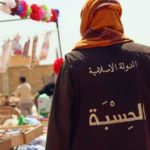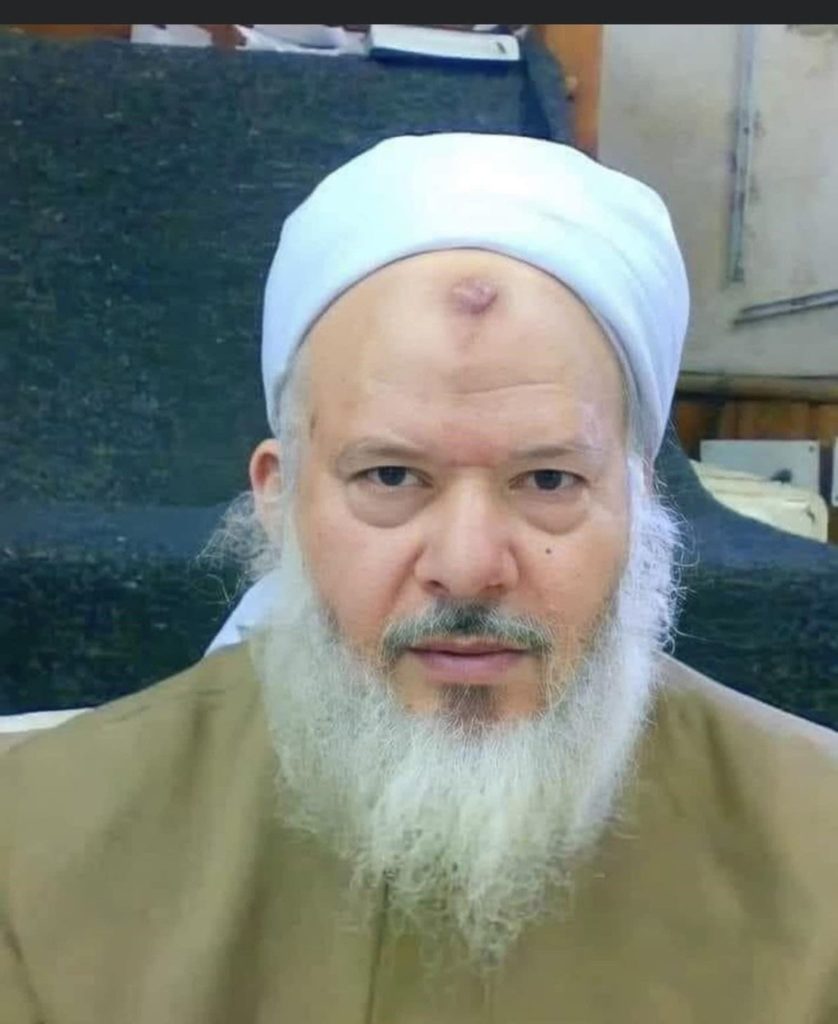
So much of what we do now on a daily basis was in the past forbidden by Sharī‘a and much of what we see as forbidden today was clearly permissible in the past! For example, there is a treatise on the prohibition of European cheese and the prohibition of singing and attending singing concerts.
ABU BAKR MUHAMMAD ibn al-Walid al-Tartushi al-Maliki (ob. 520/1126), took for his subject a question posed by some Alexandrians concerning cheese that the Crusaders were shipping to Alexandria. He prohibited it for economic reasons (boycotting Crusader products), and also for health and religious reasons. It was said that he had listened to cheese merchants who assured him that the Crusaders mixed this cheese with pig fat, and he went on to confirm it as unlawful according to the principle of ‘not eating dead meat’, since these cheeses were being extracted from animals not slaughtered according to the Islamic method.[1]
Similarly, we have also heard about the prohibition of Coca-Cola on the grounds that it is made from pig’s blood. Women driving a car was for prohibited by Sharī‘a for many decades in the Kingdom of Al Saud, since it opened the door to falling into that which is prohibited, only for it to be subsequently permitted, under pressure from King Salman and his son! Coffee too was forbidden by the fatwas of shaykhs in the Hijaz, and this prohibition infection spread to Egypt and continued for many years, to the point that security forces began to raid cafes, which caused riots in Cairo. The crisis only abated with the appointment of a new Mufti of the Ottoman Empire, who issued a fatwa permitting the drinking of coffee!
Nor is the story of water taps (hanafiyyat in Egypt) hidden from us. At the end of the nineteenth century, water taps began to be installed in Cairo. But this affected the work of the Saqqa’iyyin, the water-sellers. So these went and complained to the shaykhs at Al-Azhar. The Hanbali, Shafi’i and Maliki shaykhs duly issued fatwas stating that performing wudu’ (ritual ablution) with tap water was not permissible according to the Sharī‘a. However, the Hanafis (the shaykhs of the Hanafi school) permitted the use of tap water, and even said that it was desirable also in the performance of wudu’. Accordingly, the Egyptians still call the tap a hanafiyya, in relation to them.
Does heaven change its position? Or does it know nothing about what is going on down here on earth?
For many centuries the Azharis also issued fatwas licensing female circumcision, differing only on whether it was a Sunna or merely an honourable act, meaning that it is a desirable thing to do, with all of them agreeing that it is legally permissible! In 2006 the matter changed under pressure from Mrs. Suzanne Mubarak (wife of former President Sadat), and so Al-Azhar issued a fatwa prohibiting female circumcision, on the grounds that it caused severe harm to the female, and in accordance with the principle that states: ‘let there be no injury or harm’!
Likewise, we find that they all agree that usury was one of the last things forbidden by the Qur’an due to its extreme gravity, yet they still differ widely concerning many of its branches and sub-categories, and have not come to a firm consensus on it to this day.
Does heaven change its position? Or does it know nothing about what is going on down here on earth?
So we find Dr. Khaled Omran, Secretary of Fatwa at the Egyptian Dar Al Ifta, saying: “Organ donation is permissible, except for one organ – the reproductive system – because this would lead to the mixing of lineage!” Similarly, we read how Shaykh Dr. Osama Abdel-Azim, one of the shaykhs of Al-Azhar (who passed away on October 4, 2022) used to forbid the acquisition of television or modern devices such as computers, and advised his students and followers accordingly, yet he did not oblige them to abandon them. It was also forbidden for men to wear trousers and a tie, and that praying with them was not permitted and was unacceptable according to his expertise and knowledge. He thus advised his followers to offer their prayers on this to find out whether it was acceptable or not! He also maintained special rituals when issuing a fatwa. If anyone requested a fatwa from him, he had first to remain with him a whole day in the mosque, and if it was the month of Ramadan he was to pray behind him standing and keep vigil the whole night from dusk to sunrise. He and his students would stay in the mosque the whole month, and if anyone wished to be described as his student he was to wear the jilbab-robe and keep his beard long, and if he wished to get even closer to him, he was to bring the television and computer with him to the mosque to ensure that his family were not watching ‘that which might anger God’ while he was away from the home.
They say that the first general rule in what is halal and haram is that the starting point is permissibility, that all is allowed if not prohibited with a clear and explicit legal Text. But they often fabricate this Text and give it a false Qur’anic or prophetic legitimacy, and even make additions to what the texts prescribe under the pretext that ‘what may lead to what is forbidden is itself forbidden’; adultery is forbidden and so are its precursors such as looking, wearing revealing clothing, being alone with a member of the other sex, immoral manners, or shameless spectacle. Everything that leads to the forbidden is forbidden. Alcohol is forbidden, so therefore is selling it, sitting with someone drinking it, distilling it, transporting it, advertising it or trading in it.
The sole aim of halal and haram is to keep him in a state of permanent adolescence
The positions of jurists and clerics and their fatwas were, and still are, strongly dependent on the level of their personal education, the culture of the time they are living in, and above all to the propensities and priorities of governing powers. This was explained by Prof. Dr. Mahmoud Mohamed Ali, Professor of Philosophy at Assiut University, with regard to Shaykh Yusuf Al-Qaradawi: that he was a politicized preacher.[2]
It is clear from all this that no action in human life can be said to be absolutely permissible or absolutely prohibited, and that every action can carry within it something permissible or forbidden depending on certain points of view. No one can thus grasp what is forbidden and what is permissible with any precision, or what is to be the ethical stance or action to take towards anything, particularly since morality has absolutely nothing to do with religion or this alleged issue of halal and haram.
On the other hand, we find that an individual person, in order to secure some basic needs in life, may have to weaken his faith and accordingly reduce acquiescing to what is permissible and forbidden to him. This militates against the purpose of the jurists and clerics to oblige him to forego his freedom, while he lives, to engage in anything, or acquire anything, or use or consume anything on the grounds that it is it is forbidden, in exchange for the rewards that await him after his death! He does not know that the sole aim of this issue of what is halal and haram is to keep him in a state of permanent adolescence, whereby he loses self-awareness until such point that he ends up in a state of regret, of painful fear and lack of identity, so that he turns against his own life in a state of discontentment both with himself and with others about him, and slides headlong towards bigotry. Declaring something ‘permitted’ or ‘forbidden’ is special strategy of the Islamists, one which aims to entrench submission, servitude and fear in the hearts of Muslims, to the advantage of rulers and clerics.

Suggested Reading
The environmental milieu in which an individual exists plays a major role in whether or not he adheres to what is halal or haram and, if he lacks self-awareness, it entails a low degree of privacy. This places him most of the time at the mercy of the opinions and evaluations of others around him, and so his attitudes and behaviour are made to conform to what is, or is not, acceptable in society. This means he has to commit himself all the more to religious obligations and prohibitions, so that he refers himself to the cleric and not to his own mind, he wrestles with what is halal or haram and forgets his self-awareness, he remains unable to think, he actively fears freedom and fights against everything that calls for joy, peace and love!
But the problem does not lie in his position on what is permissible and forbidden – since whether or not he adheres to them remains a personal matter. The real problem is when this position is transformed from a mere opinion or personal choice into an ideology, with its rulings and prejudices, and a personalised committee for the promotion of virtue (an unknown) and the prohibition of evil (a similarly unknown)! The lives of the jurists and clerics themselves meanwhile remain mired in adulation and ingratiation to rulers, Islamist or non-Islamist, diverting popular attention to what is halal or haram for these rulers, who will permit for themselves what they prohibit for others, after the example of the noble Prophet!
They do everything in their power to keep the herdlike nation together, by creating a false identity
They do everything in their power to keep the herdlike nation together, by creating a false identity for the members of the herd. In this identity each of them sees himself as privileged and superior, whether the context be religious or non-religious. The task of the shepherd of this herd and of his shaykhs is to make his consciousness disappear, so that his ego may transcend all things, consume all that exists and turn it to his service – and this includes religious faith, ideologies, different opinions and positions, and these issues of halal and haram!
The point of permitting and prohibiting in the religion of the Islamists is to create a collective mind, one in which the members of society assume that the conduct of the group reflects correct behaviour, as the group becomes dominant over them. In so doing the individuals lose their ability make judgements and distinguish what is right or determine for themselves an appropriate behaviour, thus bringing them to what is called ‘herd behaviour.’ Within this herd their tragic situation is multiplied, in that the intellectually independent individual now becomes an enemy of society and a threat to its unity. He is then accused of treason, disbelief and disloyalty. The German philosopher Arthur Schopenhauer noted on this, that:
What the herd hates most is a person who thinks differently; they don’t actually hate his opinion but hate his temerity to have the courage to think for himself and be different.

Suggested Reading
The herd society therefore fights tooth and nail against those who are enlightened, and persecute them and liquidate them physically and morally, whenever these call for change. Yet when the change is instituted from the top of the pyramid, as is happening now in Saudi Arabia, heads are bowed minds humbled and what was forbidden according to the custom of the jurists and clerics now becomes lawful, what was haram in their opinion now becomes halal.
This state of tutelage and the obfuscation thus has the aim of turning lies into sanctities and manipulating the attitudes of the herd towards various modes of living. All of this leaves the enlightened individual impotent to rid himself of his delusions other than through liberating himself from the religious belief itself, so that he can duly extricate himself from the circle of collective stupidity, and free himself from the grip of inadequacy and impotence that has been imposed on him by using his mind free of the direction of others.
In so doing he discovers that he does not in fact suffer from any deficiency or imbalance in his mind, but rather from weakness in resolve and the boldness and courage to use his mind without anyone else directing him. For a man to use his reason requires nothing more than freedom; this freedom begins with his right to use his mind in all areas of life.
[1] Abu Bakr Muhammad ibn al-Walid al-Tartushi, تحريم الجبن الرومي (download the treatise here).
[2] Dr. Mahmoud Mohamed Ali, يوسف القرضاوي الداعية المسيس . (Download the work here).
Main image: The tap – for which we have to thank the Hanafiyya school of law.
See Part 1 of this essay here

